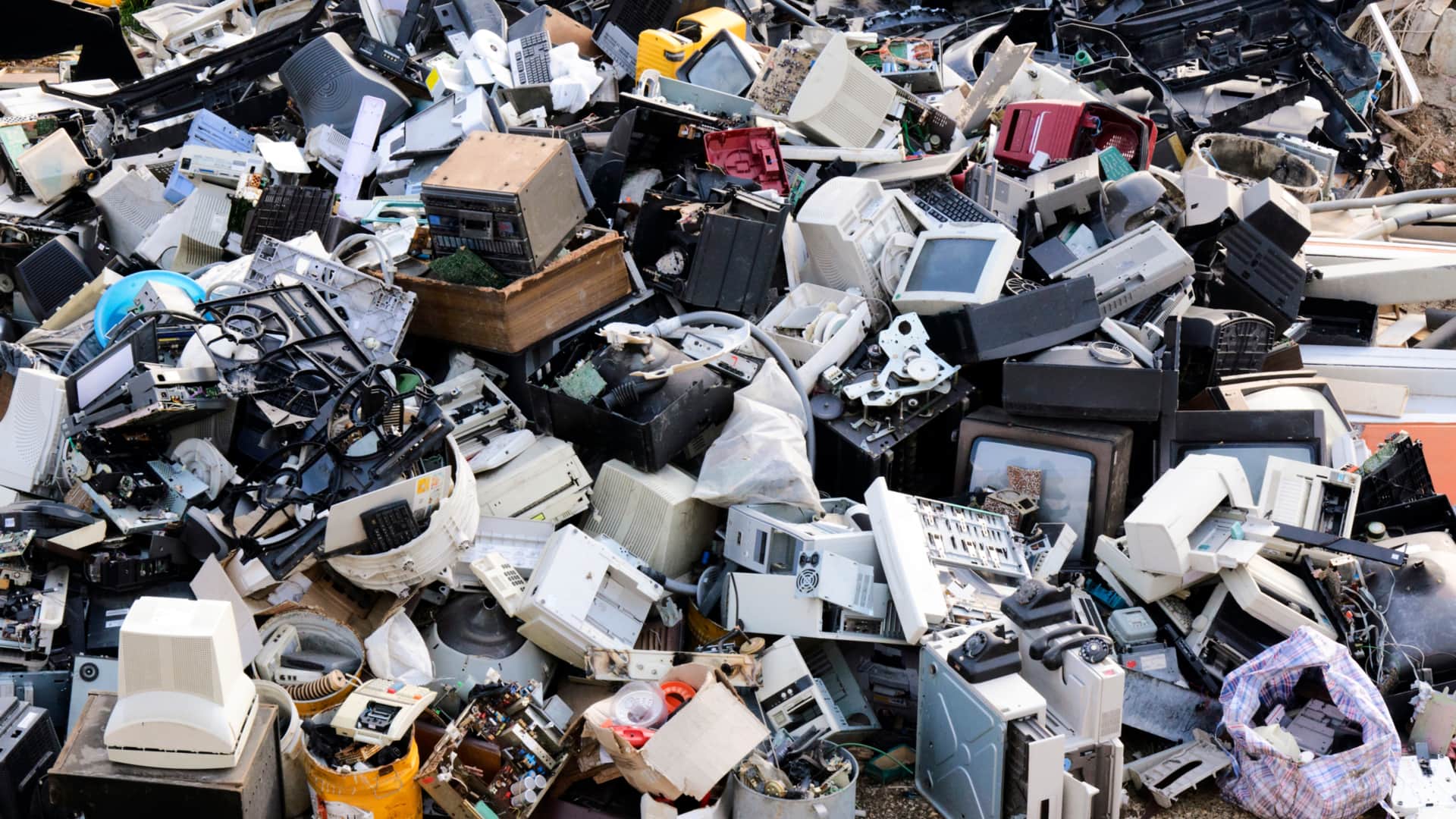First e-waste collection project launched

Used computer disposed off
By Stephen Wandera Ouma
KAMPALA – The Uganda Communications Commission (UCC) has launched the country’s first pilot project to collect and safely dispose of used electronic gadgets, focusing on ICT devices such as mobile phones, computers, and chargers. The initiative aims to tackle the growing public health and environmental risks posed by unmanaged e-waste.
Speaking at the launch, Ministry of ICT and National Guidance Permanent Secretary Amina Zawedde described the move as “a significant milestone” towards a cleaner, safer, and more sustainable Uganda. “While ICT has transformed lives and created new opportunities, it has also brought the challenge of e-waste devices that have reached the end of their life and are often discarded improperly,” Zawedde said.
Uganda produces an estimated 41 million kilograms of e-waste annually—about 0.9 kg per person—yet only 0.2 million kilograms are formally collected and recycled, according to UCC. A 2020 study found that 85% of ICT devices become waste within four years, with many ending up in landfills or in the hands of informal collectors, causing pollution and health hazards.
Old phones, broken chargers, routers, and TV sets often contain toxic substances such as mercury, lead, and cadmium, which can contaminate soil and water, cause respiratory illnesses, cancers, and organ damage, and even spark fires when batteries are stored improperly. Counterfeit ICT products, which fail sooner than genuine ones, further add to the e-waste burden.

Some of the participants at the launch
Zawedde recalled that Uganda introduced a National Electronic Waste Management Policy in 2012, reinforced by the National Environment Act (2019). In 2021, NEMA and the National Enterprise Corporation opened a national e-waste management center in Kampala, but recycling capacity remains limited.
She revealed that the policy is now being updated to improve institutional coordination, assign greater responsibility to manufacturers, and align with circular economy principles. “One center is not enough. We need regional facilities to ensure effective e-waste collection nationwide,” she said, noting that government and large institutions are among the biggest waste generators.
The pilot project will establish drop-off points for the public to hand in unused or broken ICT devices. Two implementing partners—Towa Uchafu Na Nusu and Value-Added Services Consults Ltd.—will manage collection, with technical support from NEMA, KCCA, and Luwero Industries.
“This is not just about collection,” said UCC Executive Director Nyombi Thembo. “It is about building a long-term ecosystem for responsible e-waste management where public awareness, regulatory enforcement, and environmental protection work hand in hand.” The project will also promote “take-back” schemes where manufacturers reclaim end-of-life products for recycling or refurbishment.
“Due to ignorance, many people store unused electronics at home, unaware of the dangers,” Thembo said, urging the public to respond to the campaign slogan, “DECLUTTER E-WASTE TODAY.” UCC Director of Engineering Alfred Bogere called for broad participation. “Every phone, cable, or computer you dispose of safely brings us closer to a cleaner, healthier Uganda,” he said.
“This is about protecting our water, soil, and air, and safeguarding future generations.” The project is expected to support Uganda Vision 2040 and the National Development Plan goals, which position ICT as a driver of economic growth and job creation. “More devices will come into the country as we digitize every sector,” Zawedde warned. “If we don’t plan for their end-of-life management now, the problem will only grow.” Project implementers plan to work with ministries, local governments, schools, businesses, and civil society to expand awareness campaigns and strengthen collection systems.
